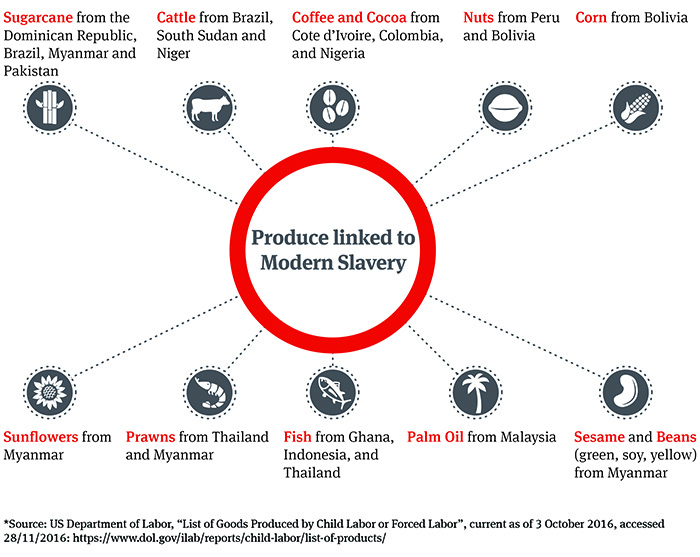In light of the high risk of modern slavery occurring in food and agriculture businesses and supply chains, many companies are already in the process of reviewing their operations and supply chains and implementing measures to identify and address incidents of modern slavery.
Those businesses that haven’t already done so should consider taking the following steps:
- mapping the organization’s structure, businesses and supply chains
- formulating policies in relation to modern slavery – this will involve collating current policies, identifying gaps, adapting existing policies and formulating new policies, as needed
- carrying out a risk assessment – identifying those parts of the business operations and supply chains where there is a risk of modern slavery taking place
- assessing and managing identified risks – this may include carrying out further due diligence in the entity’s operations and supply chains and reviewing and adapting contract terms and codes of conduct with suppliers
- considering and establishing processes and KPIs to monitor the effectiveness of the steps taken to ensure that modern slavery is not taking place in the business or supply chains
- carrying out remedial steps where modern slavery is identified
- developing training for staff on modern slavery risks and impacts.
Businesses operating in the food and agriculture industries need to be particularly alive to the risk of slavery occurring deep in their supply chains, which are often long and complex.
Well publicized incidents mean that businesses operating in these sectors are likely to be treated as being “on notice” of these risks and the government, media and public will closely monitor the steps they are taking to operate sustainably and ethically.
By undertaking these steps, businesses will be well placed to respond effectively to new regulations and show that they are committed to eradicating modern slavery, in Australia and overseas, and taking concrete steps to achieve that outcome.
Norton Rose Fulbright has experience in Australia and globally assisting clients with modern slavery risk management and reporting, as well as broader business and human rights advice. We made a submission to the Inquiry (No. 72) and participated in the public hearing held in Sydney on 23 June 2017.
We also have been actively participating in the Attorney-General’s Department national consultation process to refine the Government’s proposed Modern Slavery in Supply Chains Reporting model.





